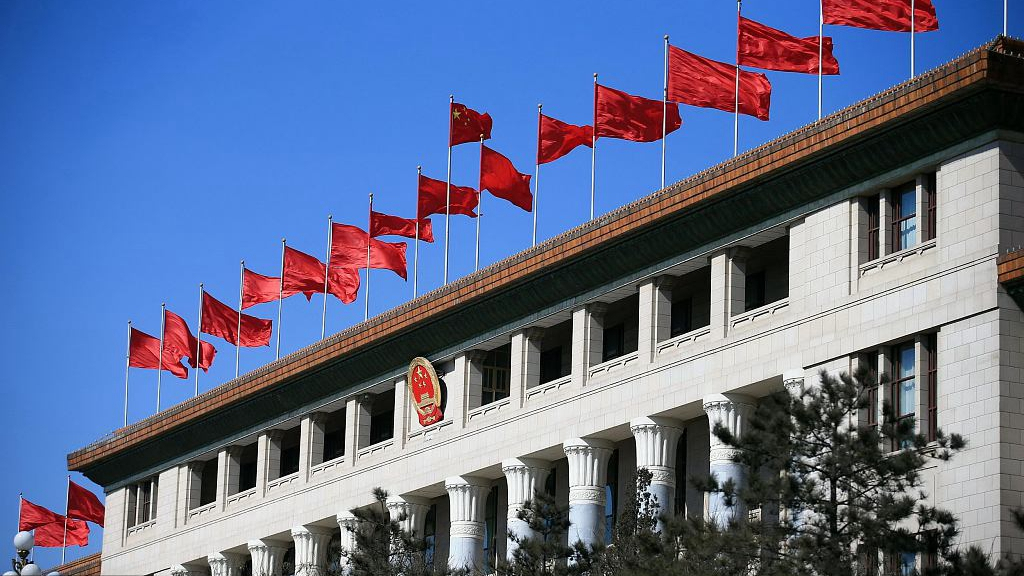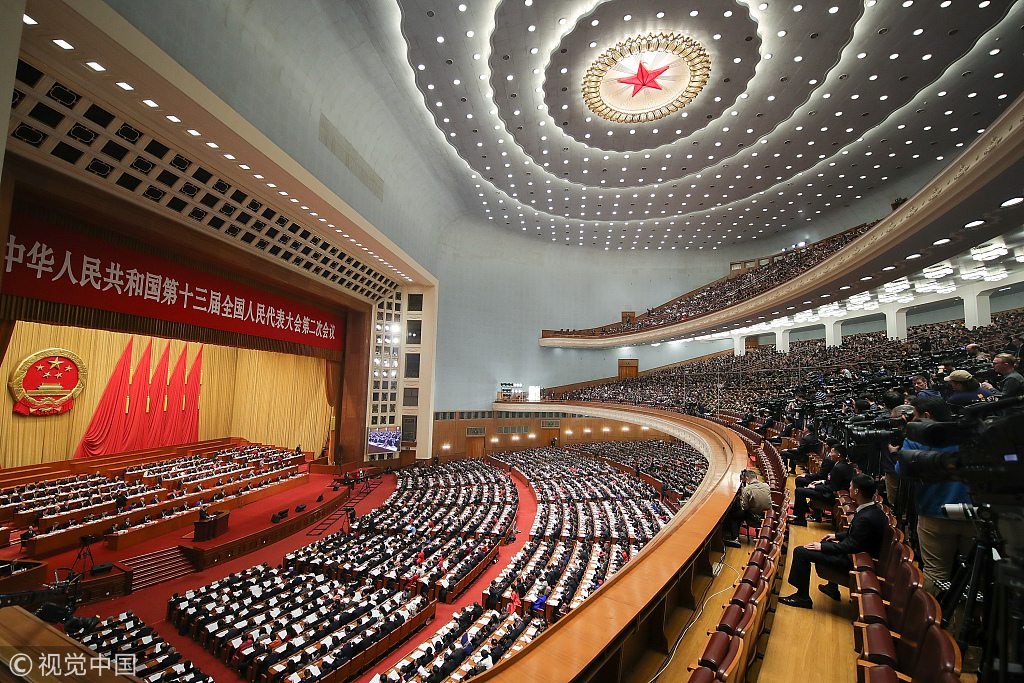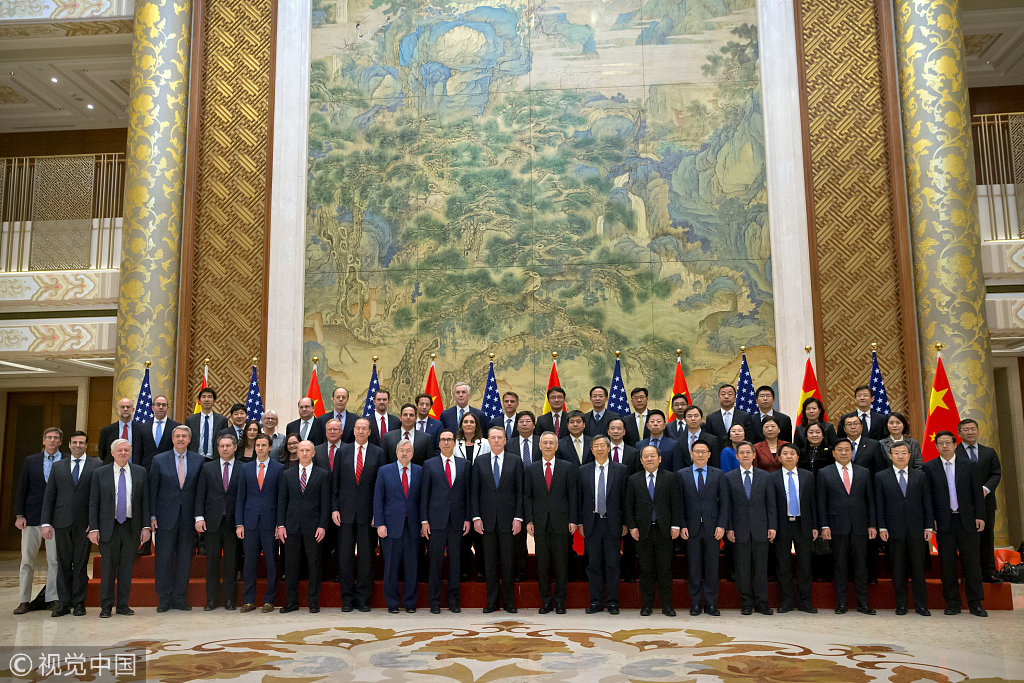
Opinion
22:50, 05-Mar-2019
Premier Li's speech suggests U.S. competition-based China policy unwarranted
Updated
09:40, 06-Mar-2019
John Gong

Editor's note: Dr. John Gong is a research fellow at the Charhar Institute and a professor at the University of International Business and Economics. The article reflects the author's opinion, and not necessarily the views of CGTN.
Premier Li Keqiang has delivered the 2019 Government Work Report to the National People's Congress on March 5.
His speech begins with a collection of achievements the current administration has achieved so far, particularly in the area of economic performances. Amidst a wave of impressive statistics for 2019, for example for employment (unemployment stands within 4.5 percent) and inflation (consumer price index at about 3 percent), there is no denying in Premier Li's sober tone in his forecast of the future that we are running into a headwind.
Most noticeably, he has officially revised this year's GDP growth projection down to 6-6.5 percent. Last year it was 6.6 percent, with every quarter going down a bit consecutively. That means in the worst case we are going to see a 0.6-percent drop in our growth rate this year.
In my opinion, an important reason is that we have been in the boom cycle for too long since the 2008 financial crisis and a reasonable pullback is inevitably around the corner. And besides, the second largest economy in the world can't defy gravity in growing forever at this speed.

Chinese Premier Li Keqiang delivers a speech in the opening of the second session of the 13th National People's Congress in Beijing, March 5, 2019. /VCG Photo
Chinese Premier Li Keqiang delivers a speech in the opening of the second session of the 13th National People's Congress in Beijing, March 5, 2019. /VCG Photo
The 6-6.5 percent projection makes me think about another broader question in the context of long-term Sino-U.S. relations. Today Washington's foreign policy shift to position China as a competitor, adversary and even a rival, which by the ways enjoys wide consensus across the aisle in Congress, is premised upon the assumption that China is going to soon take over the U.S. in most comprehensive power metrics. The analogy to the so-called Thucydides trap is purely because of that reason, scaring a lot of people in Washington.
And it is not just the Americans purveying this dubious theory. In fact, on this side of the Pacific, even some of the Chinese scholars share this view, too.
But seriously, Premier Li's sober 6-6.5 percent projection sinks in with a reality check. And based on that, I would question the validity underlying America's concern for China's rise. In economics, there is this convergence theory postulating that the growth rates for advanced economies will eventually converge, and the size of the economy is essentially driven by population size.
Say we are able to maintain over 6 percent growth for two more years and quickly enter the 5 percent growth rate territory. This means within two to three years, China's growth rate is going to be just marginally faster than the U.S., and within five to 10 years, I would even forecast comparable growth rates for both countries.

Members of U.S. and Chinese trade negotiation delegations pose for a group photo at Diaoyutai State Guesthouse in Beijing, February 15, 2019. /VCG Photo
Members of U.S. and Chinese trade negotiation delegations pose for a group photo at Diaoyutai State Guesthouse in Beijing, February 15, 2019. /VCG Photo
The trend in population is even more revealing. According to the United Nations, by 2050, the U.S. population, with a higher birth rate and aided by immigration, is likely to increase to close to 500 million while China's population is likely to decline to about 1.3 billion. So even over a long period of time, it is not clear that China is going to take over the U.S. in any significant way. A more likely scenario is convergence in terms of economic power in light of the economic and demographic trends in both countries.
If my stretched interpretation of Premier Li's economic forecast holds water, Washington's current competition-based China policy is then obviously built on paranoia and thus totally unwarranted.
(If you want to contribute and have specific expertise, please contact us at opinions@cgtn.com.)

SITEMAP
Copyright © 2018 CGTN. Beijing ICP prepared NO.16065310-3
Copyright © 2018 CGTN. Beijing ICP prepared NO.16065310-3